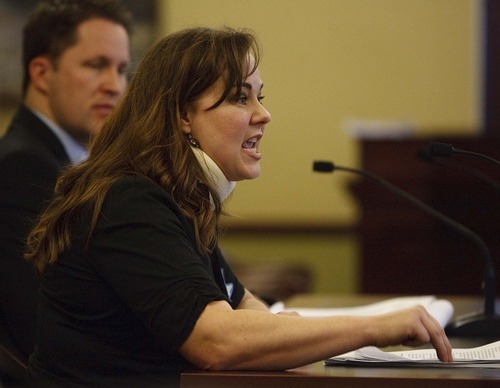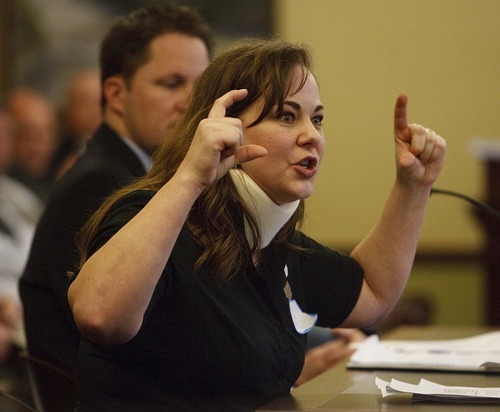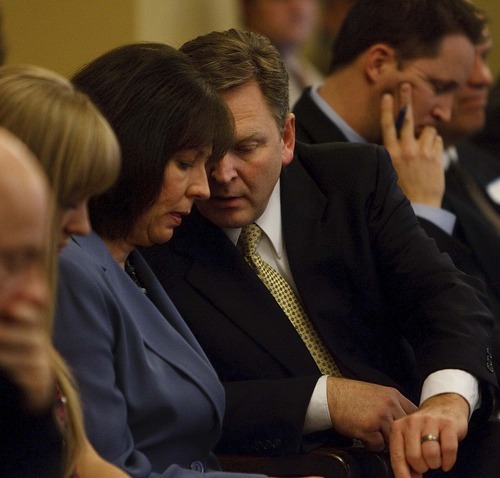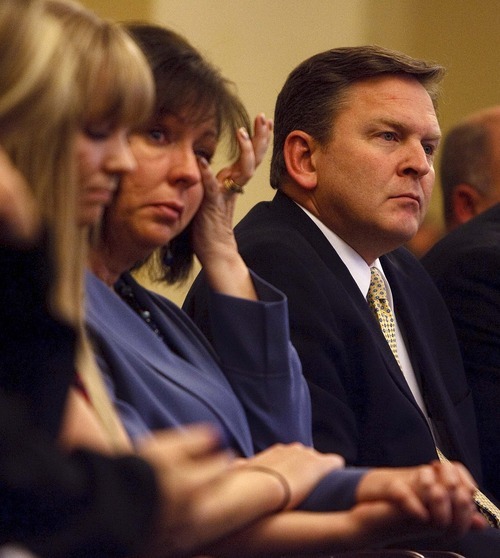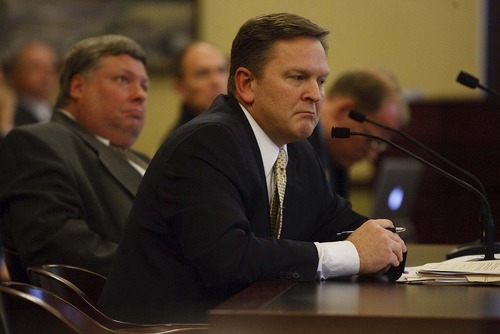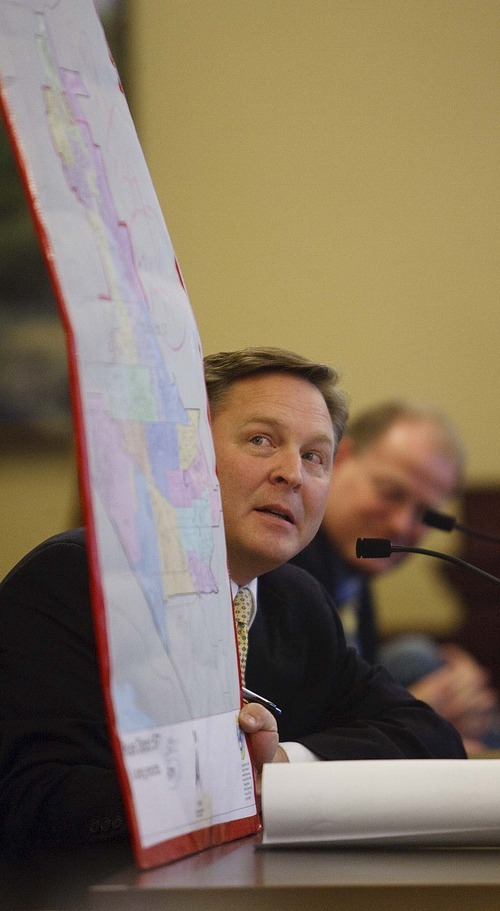This is an archived article that was published on sltrib.com in 2011, and information in the article may be outdated. It is provided only for personal research purposes and may not be reprinted.
House leaders unanimously agreed Tuesday that Craig Frank doesn't live in the district he was elected to represent and that the Utah Constitution prohibits him from serving in the state Legislature.
"I can't read what's in that state constitution and on our first day swear to uphold that constitution and say right now we have a representative who lives outside that district and we want to [seat him]," said House Majority Whip Greg Hughes. "We can't just say we wish those lines are right."
Frank, however, is undeterred, calling any action that wouldn't ensure about 600 voters in Cedar Hills the chance to elect their representative in the state Legislature "improper and illegal" and vowing to continue the fight.
That includes forcing a showdown on the floor of the House on its opening day next Monday, and he isn't ruling out going to court to pursue a fix.
"Many of my constituents have come to me and said, 'Craig, whatever it takes to get you seated, do that,' " he said. "Legal action is not anything I look forward to, but I would suggest that is one of the potential options, at this point."
The controversy centers on a disputed boundary for House District 57.
The official map adopted by the Legislature didn't include areas annexed into Cedar Hills in 2000 and 2001, but the map drawn by the county clerk included those neighborhoods.
Frank moved into the annexed area in 2009, but because it isn't on the official state map, the lawmakers determined he lives outside the district.
House Speaker Becky Lockhart said the resolution from the House Management Committee — made up of leaders from both parties — makes it clear that it believes Frank doesn't live in the district.
Options remain to solve the Frank issue, she said, including the potential adjustment of the boundary early in the session, although Lockhart said she doesn't know if any representative has asked for a bill to be drafted to make the change.
"I am concerned that there are a couple thousand people [in Cedar Hills] who, through no fault of their own or no fault of the Legislature, have been voting in an election, I guess you could say, somewhat erroneously," Lockhart said. "I think that ought to concern every citizen of the state."
One of those Cedar Hills residents who says they are being disenfranchised is Karen Herd, whose husband is preparing to deploy to Afghanistan.
"If he is not going to Afghanistan to defend my right to vote, then I don't know what he's going there for," a tearful Herd told the committee.
Herd said in an interview that failing to fix the boundary is a slap in the face and a violation of the fundamental voting rights of residents of Cedar Hills.
"They're effectively relegating us to the same status as prisoners or ex-cons, but at least the prisoners and ex-cons got due process," Herd said.
Legislative attorneys said that the law is clear: Only the Legislature can draw the boundaries, and those boundaries are built on blocks of data provided by the U.S. census.
The lines on the official maps are binding and clear: Frank lives about a half-mile north of the district boundary.
Despite the presentation, when Hughes asked Frank, "Do you believe you're a resident of House District 57?," Frank responded that he did.
He and his supporters pointed to the fact that, in every election since 2002, the Utah Lieutenant Governor's Office and the Utah County clerk have approved ballots and certified elections during which those Cedar Hills residents voted in the wrong districts.
"Now what you want District 57 and Craig Frank to do is bear the responsibility for your fault," said Morgan Philpot, an attorney and former congressional candidate whose volunteers were told they were campaigning in the wrong district because of the error in the map.
"I think the fix is easy. You fix the problem that you, the state, have created," he said. "I think that fix is simple. You re-enfranchise those voters by giving them the vote you promised them."
Herd argued that nobody was hurt by Frank serving the past two years in the House while he didn't live in his district — and nobody would be hurt if he serves the next two.
But if the problem isn't fixed, she and other Cedar Hills voters suffer.
But House Majority Leader Brad Dee, R-Ogden, said, the way he sees it, his hands are tied.
"I cannot, in good conscience, vote to qualify a representative that I believe lives outside the district," Dee said. "That's why I cannot vote to seat that representative."
Frank's supporters were bitterly disappointed by the decision.
"They gave a pretty clear signal to me today, as a voter, that the time I took to go to the polls last November was a complete waste of my time," Herd said. "They had made their decision before they entered the room. It was a farce."
Meanwhile, the Utah County Republican Party had scheduled a special election Saturday to replace Frank, but it was postponed pending the outcome of his attempt to be seated by his House colleagues.
That election is tentatively scheduled for Jan. 29. —
What the constitution says
R "A person elected or appointed to the office of senator or representative may not continue to serve in that office after ceasing to be a resident of the district from which elected or for which appointed." —
Online • A lookat the maps
O See the official maps from the state • http://bit.ly/ec9DGp
Utah County • http://bit.ly/i9cghi


